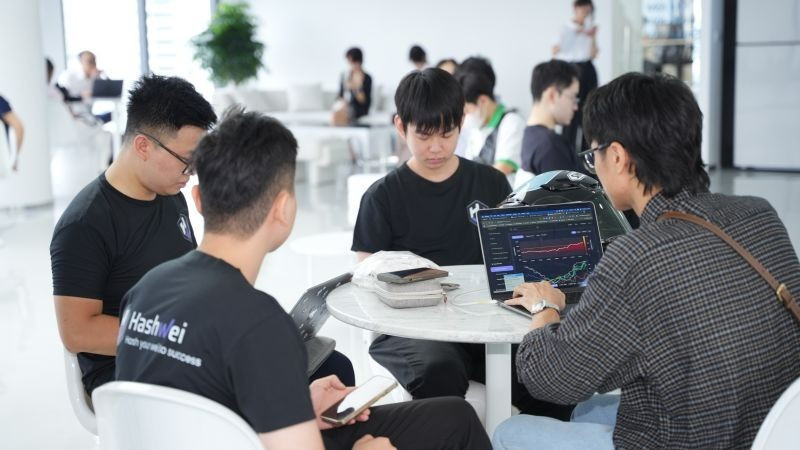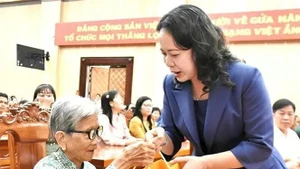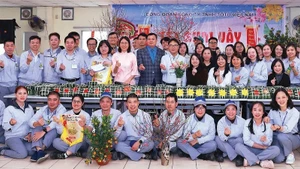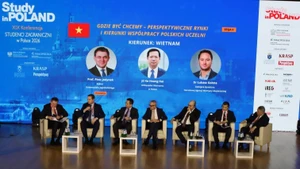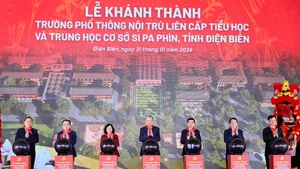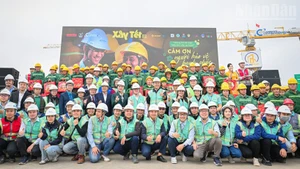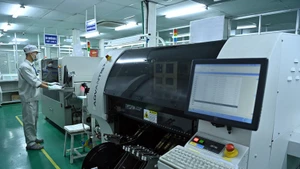This growing need for tech-savvy talent has positioned the information-technology sector as one of the most attractive fields in today’s labour market.
These insights were echoed by speakers at the ABAII Unitour 2025, which was recently held in Ho Chi Minh City under the theme “Liberating Digital Thinking – Leading Future Careers.”
The event, co-organised by the Viet Nam Blockchain and Digital Assets Association, the ABAII Institute of Blockchain Technology and Artificial Intelligence, attracted the participation of over 500 students and lecturers from the University of Finance and Marketing as well as experts from finance, technology, and education sectors.
It aimed to create a forum for discussing how blockchain, AI, and legal frameworks are shaping new directions for the young workforce in the digital economy.
To meet new workforce demands, training models must closely connect schools, businesses, and professional associations, equipping students with both solid theoretical foundations and practical experience that exposes them early to real technology and an innovation culture.
Associate Professor Dr Le Thi Thuy Hang
Speaking at the event, Associate Professor Dr Le Thi Thuy Hang, Deputy Director of the Institute of Financial and Banking Technology at UFM, emphasised education’s central role in digital transformation.
“Universities should not only convey knowledge but also become spaces to liberate technological thinking and foster creativity among the youth,” she stressed.
She emphasised that to meet new workforce demands, training models must closely connect schools, businesses, and professional associations, equipping students with both solid theoretical foundations and practical experience that exposes them early to real technology and an innovation culture.
Preliminary statistics indicate that 2025 is a milestone year for the global crypto-asset market, with total market capitalisation surpassing 4 trillion USD for the first time and over 716 million users — a 16% increase from 2024.
Stablecoins alone achieved a total transaction volume of 46 trillion USD, comparable to major payment networks like Visa and ACH, showing crypto-assets’ deepening integration into traditional finance.
Tran Huyen Dinh, Head of the Fintech Application Committee at the Viet Nam Blockchain and Digital Assets Association and CEO of AlphaTrue, noted that global demand for blockchain talent is rapidly increasing. International data shows blockchain engineers in the US earn nearly 150,000 USD annually, while in Singapore the figure is about 108,000 SGD, reflecting blockchain’s strong appeal in the digital-finance ecosystem.
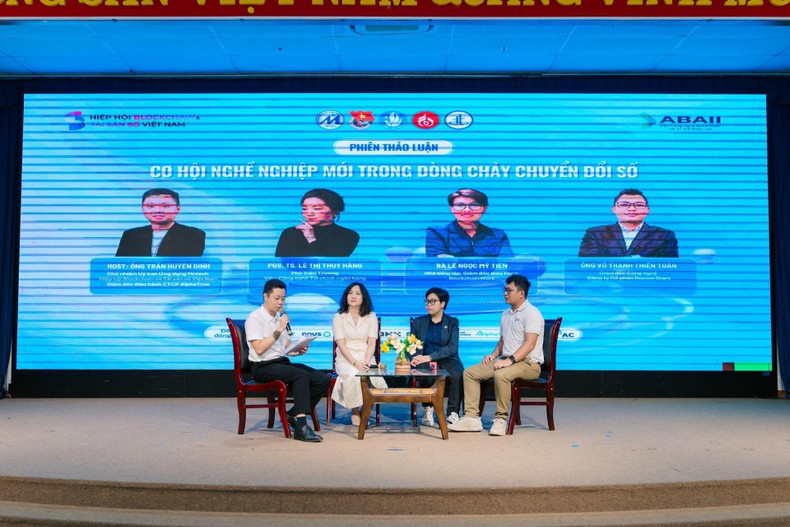
According to Dinh, Viet Nam is among the top seven countries with the highest crypto-asset ownership rates worldwide and benefits from open government policies, such as Resolution 05/2025/NQ-CP on piloting the crypto-asset market and the Digital Technology Industry Law.
He applauded these legal frameworks for setting the foundation for Viet Nam’s entry into digital finance integration and opening new job opportunities in fintech, risk management, legal tech, and digital product development.
While sharing his perspective on AI’s role in personal and professional skills development, citing LinkedIn’s 2025 Report, Nguyen Dang Chi, lecturer at the ABAII Institute of Blockchain Technology and Artificial Intelligence, pointed out that AI-related skills grow five times faster than other skills.
Global demand for this technology is widespread; however, rapid growth brings clear consequences.
Data from the 2025 Challenger Report shows that in the US, 86% of employee layoffs in September 2025 were due to “technology updates,” mostly related directly to AI deployment and application.
Sharing a similar view, Le Hoa Nha, CEO of HVA Investment Joint Stock Company, believes clear legal frameworks for crypto-assets and fintech sandboxes will be vital drivers encouraging enterprises to experiment boldly and invest long-term.
Transparent legal corridors will spur explosive growth in new professions in technology, finance, and digital law, creating broad career opportunities for students knowledgeable in both technical and regulatory aspects.
AI does not replace humans but forces humans to excel in using AI more effectively, so students must develop analytical thinking, reasoning skills, and systemic thinking rather than merely learning isolated technical operations.
Meanwhile, Vo Thanh Thien Toan, Chief Technology Officer at Decom Stars Joint Stock Company, commented that AI is reshaping production and business processes through automation, cost optimisation, and real-time data analysis.
However, he stressed that AI does not replace humans but forces humans to excel in using AI more effectively, so students must develop analytical thinking, reasoning skills, and systemic thinking rather than merely learning isolated technical operations.
From a talent perspective, Le Ngoc My Tien, CEO and Co-founder of BlockchainWork, shared that digital-technology companies now prioritise hiring candidates based on practical skills, product thinking, and the ability to apply technology to solve specific problems, rather than solely on academic degrees.
Therefore, she called on students to actively build their personal brand through real projects demonstrating creativity and understanding of business models in the technology environment.
